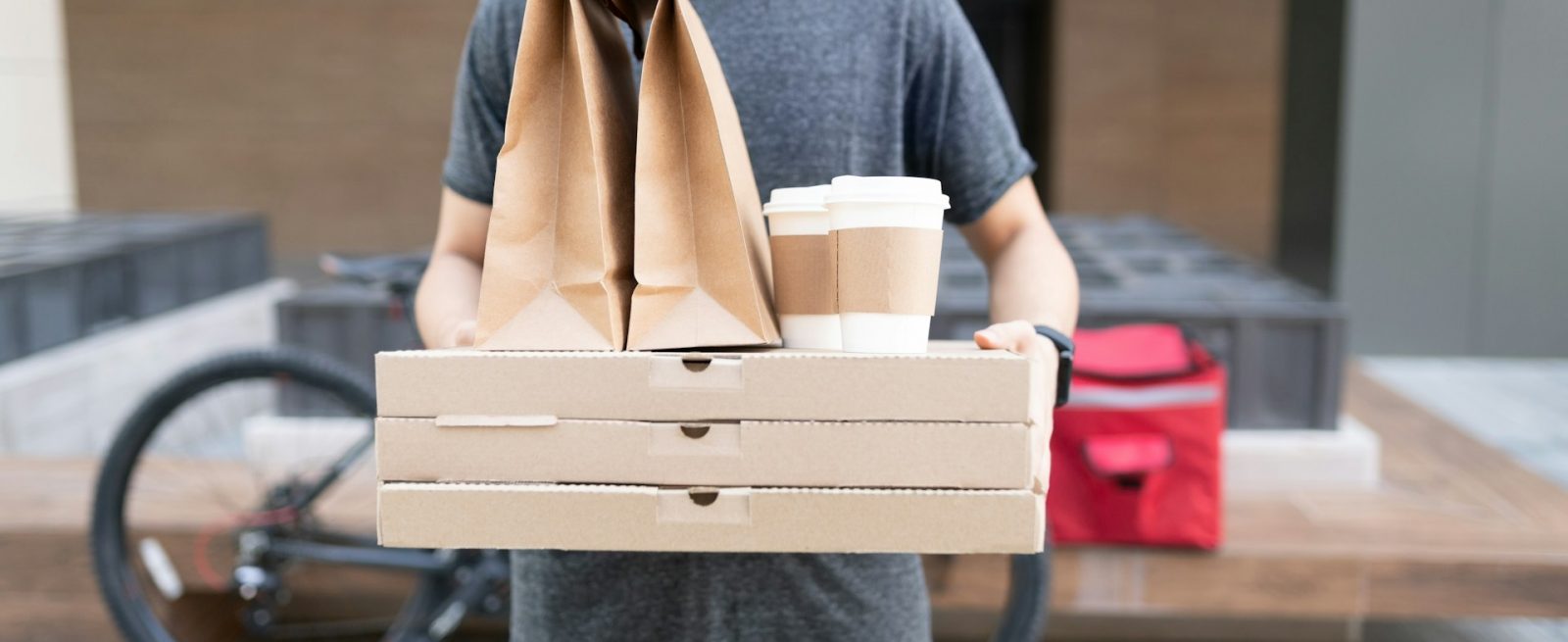Can Your Food Delivery Business Be More Sustainable?
3 Min Read By Alexander Zakharenko
In 2023, a study carried out in Europe and North America took a much closer look at delivery sustainability. The results demonstrated that online consumers seek delivery services from providers committed to carbon-neutral processes.
This trend of seeking out a more sustainable process of e-commerce related to food goods is not going away anytime soon. In the U.S., for example, farmers only export about 20 percent of their crops. The rest goes to feeding local consumers and livestock or turning them into biofuels. While this helps lower their carbon footprint, a good portion of all those produced goods must be moved from point A to point B.
Here are some key strategies you and your target food delivery partners can be using to create a more sustainable future. From ordering on DoorDash to getting a massive delivery of fresh produce, we can all do our part to help.
Optimizing Route Planning for Lower Emissions
Think about how an UberEats driver moves through a city. They are likely seeking the most efficient route possible to beat any timers and receive good reviews. Now, multiply that single delivery by the 20 or 30 trips taken to make a good profit.
Fuel and e-commerce order management systems help streamline delivery routes. It empowers drivers to reduce unnecessary detours or idling that can lead to massive increases in emissions. Leveraging food delivery automation platforms ensures route optimization minimizes excessive travel time, making better use of fossil fuel types, from unleaded gas in a moped to diesel in an 18-wheeler.
Eco-Friendly Packaging Solutions
Eco-friendly and sustainability do not only apply to fuel or moving vehicles. The packaging wrapping up that delicious Big Mac must be kept warm and safe. Sometimes, these packaging materials end up in recycling where they can be broken down for reuse. However, oils and other foodstuffs are often not accepted in recycling plants.
Moving to more eco-friendly options like biodegradable materials using bamboo or already recycled paper helps reduce unwanted waste from clogging landfills. More than 63 percent of municipal solid waste in the US was a result of food packaging. Finding ways to align inventory management with more environmentally friendly packaging helps reduce such waste.
Implementing Electric and Hybrid Vehicles
Uber recently announced an EV initiative called Uber’s Zero Emissions Incentive. It provides an extra $210 to drivers of qualifying electric and hybrid vehicles after completing 200 eligible rides.
Using EVs drastically reduces carbon dioxide emissions. In turn, this helps reduce the risks of pollution affecting climate change. Investing in such vehicles for your business or choosing to use EVs when ordering food ensures you are doing your part to lower fuel waste. In many cases, government incentives and tax reductions boost the sustainable process of e-commerce when it comes to deliveries.
Reducing Food Waste
One-fifth of the food produced for human consumption is lost or ends up in waste management. Considering those dealing with food insecurity or outright starvation, we could be doing so much more to improve how we manage the food we eat.
E-commerce order management systems allow for real-time monitoring of current food inventory. They use integrated tracking to monitor how stock levels are playing out so your business can use crucial ingredients more efficiently. This reduces your need to offset busy and slow periods of orders as well as the environmental impact of lost food due to timing.
Optimizing Delivery Frequency
Optimizing the routes of food delivery is good. Lowering the number of trips being taken is better. If there is a hotel full of 300 guests and 25 of them ask for an evening delivery of Taco Bell at different times, just picture how much idling, gas, and emissions these activities use.
Consolidating deliveries to reduce the number of trips taken improves sustainability efforts. This also lowers operational costs. An e-commerce order management system ensures you can more efficiently combine multiple orders for the least number of trips possible.
Encouraging Customer Participation in Sustainability
It is perfectly acceptable to include your target customers in your sustainability efforts. You can often wrap these efforts into a fun coupon or ongoing marketing effort to boost future sales. When you have your order tracking system in place, you can inform customers about how their choices directly impact the eco-friendly or green initiatives you and your team are trying to implement.
Utilizing Data for Continuous Improvement
Most importantly, you must track data if you want a more sustainable food delivery business or option. Understanding how regular analysis and refinement can boost the process of e-commerce is fundamental to making well-informed future decisions. Using automated systems with advanced data analytics and reporting unlocks new insights that may improve your bottom line, lead to greater efficiency, lower emissions, and even find new revenue streams. Considering how much time and effort is put into last mile delivery, using a powerful e-commerce order management software is a great way to boost future efficiencies.
Sustainability is a must. If you want your business to adapt to current consumer expectations and social trends, you need to adopt e-commerce order management systems. Work through the suggestions listed above and you are bound to find new and powerful ways to lower your emissions, streamline any waste, and find profitable efficiencies that you, your customers, and your stakeholders will appreciate.


